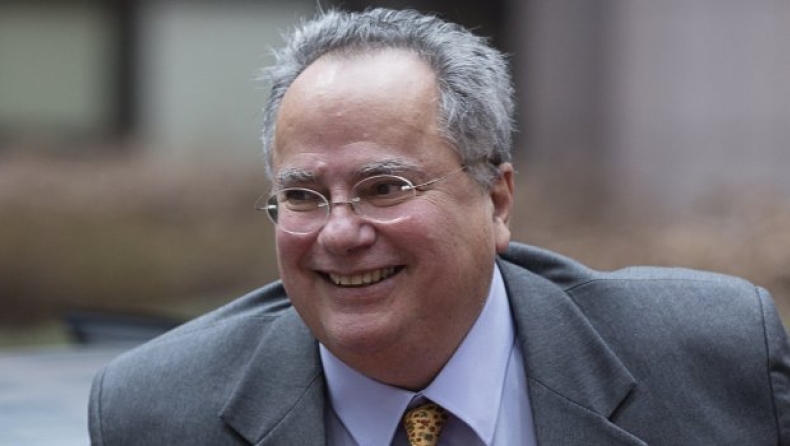Greek, FYROM foreign ministers meet in Athens, discuss confidence-building measures

In a press conference, Kotzias said they were both "happy with the initiative we took, the confidence-building measures. We already have five measures on which we are progressing creatively, and the next six. We are satisfied with the meetings that took place for the political dialogue between our very high-level diplomats, and we want to face the future and all of the issues the two countries are looking at with trust, within the new international environment as well as in the relations between us."
He said that the two sides wanted to cooperate on the refugee issue and contribute to the stability of the wider region, noting that Poposki had met Alternate Citizen Protection Minister Nikos Toskas to discuss ways to develop police cooperation.
They also discussed ways to enrich cooperation in the economy and tourism sector, as well as FYROM's European perspective, Kotzias said, adding that they had "a particularly interesting conversation" about FYROM's intention to connect to Greece’s energy network system.
"We both want there to be good cooperation between the two states, and we want voices of extremist nationalism and irredentism to be isolated... We want to capitalize on the talks taking place at the UN on the central problem of the name," he added.
Poposki, on his part, confirmed a desire for deeper cooperation with Greece and said it was an important step on the part of Greek agencies - such as the citizen protection ministry - that they were talking with FYROM.
"We talked about a number of issues. We concluded on which sectors are the ones where our positions differ, and we also identified the sectors that are important for our two countries," he said, noting that FYROM's strategy was to have good relations with Greece.
Referring to the refugee crisis, he said that cooperation and a positive stance must also be reflected in the management of the refugee issue. "We need to do whatever we can to provide decent conditions for the people passing through our countries, and I believe that the European Union can also make its own contribution here," he said.
Replying to questions about the ongoing name dispute between the two countries, Kotzias said the aim of the negotiations mediated by the UN was "an honest compromise that combats irredentism and extremist nationalism helps the future perspective of both sides."
Poposki referred to the need to work in order to improve the climate between the two countries, adding that the "dialogue we are developing and the confidence-building measures are steps in the right direction." He also confirmed that FYROM's government will go ahead with a referendum, even if a common ground is found in talks with the Greek government and noted that any solution found "will not be able to threaten the Constitution or our national characteristics if this solution is supported in a referendum."
Asked whether FYROM will complete a fence it is now erecting on the border with Greece, he noted that the sheer number of refugees created an even greater problem for the country of two million.
"We are talking about hundreds of thousands of refugees, which in Greece, which has a population of 10 million, is a problem, but for us, with our population of 2 million, they are an even bigger problem," he said, adding that the fence was a 'temporary fix' to prevent illegal crossings and direct all refugees to a registration point.
"When there is a full system for correct registration, we won’t need to put up obstacles, and, of course, we too don’t want there to be fences on the borders between two European countries. These types of borders, fences, cannot be a long-term solution," he added.




